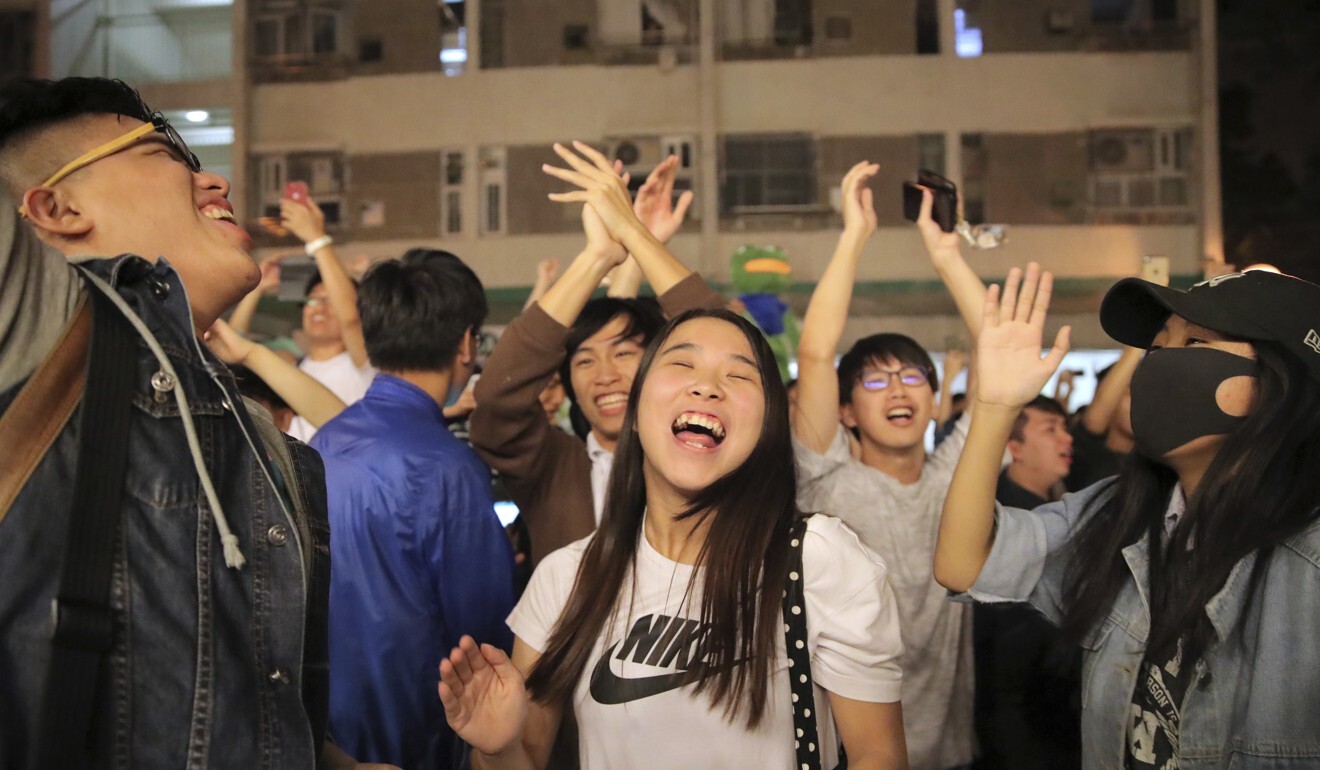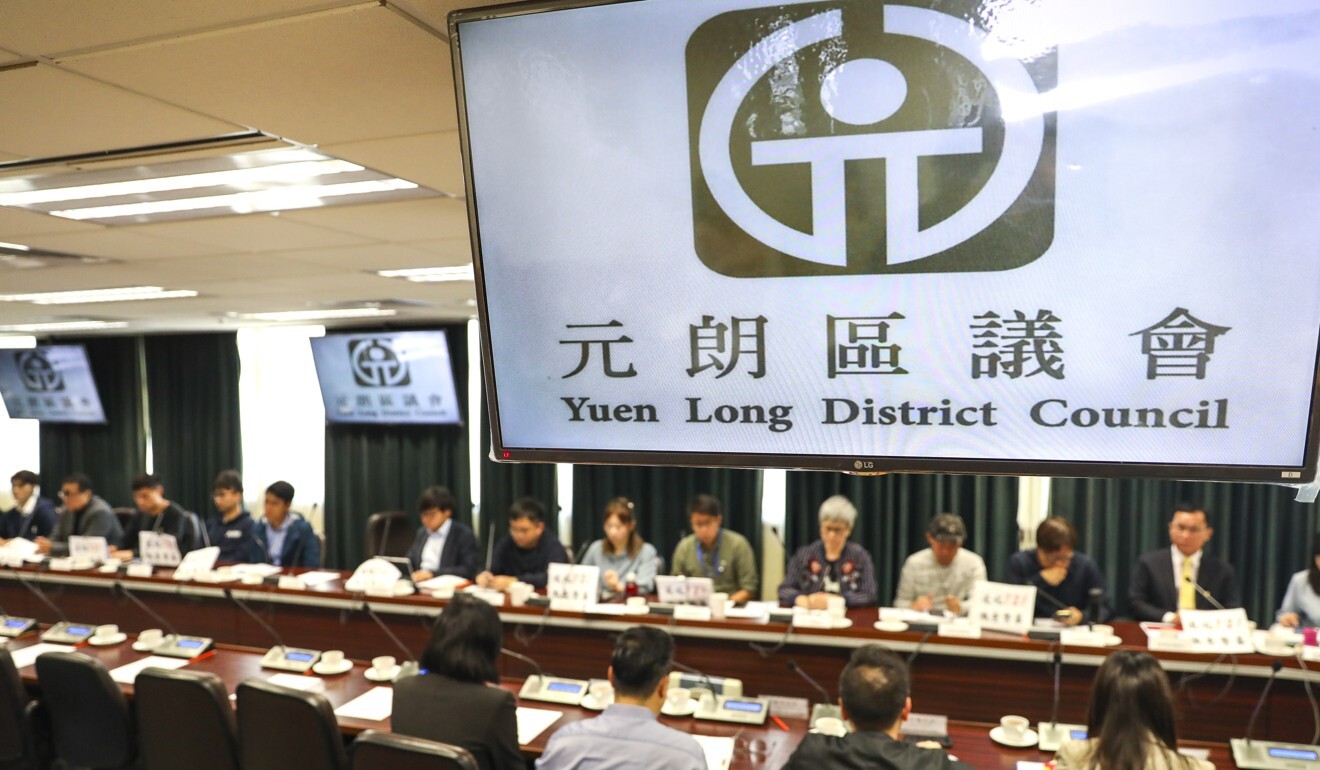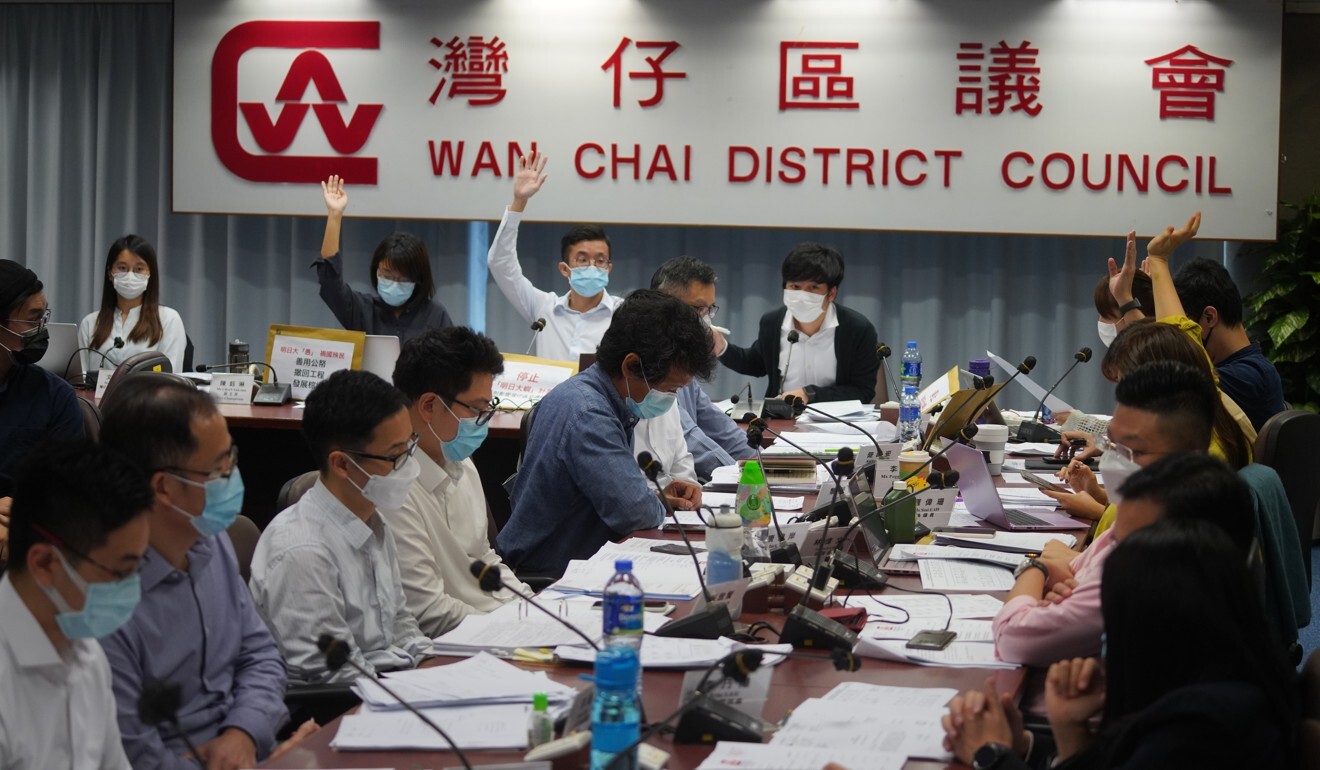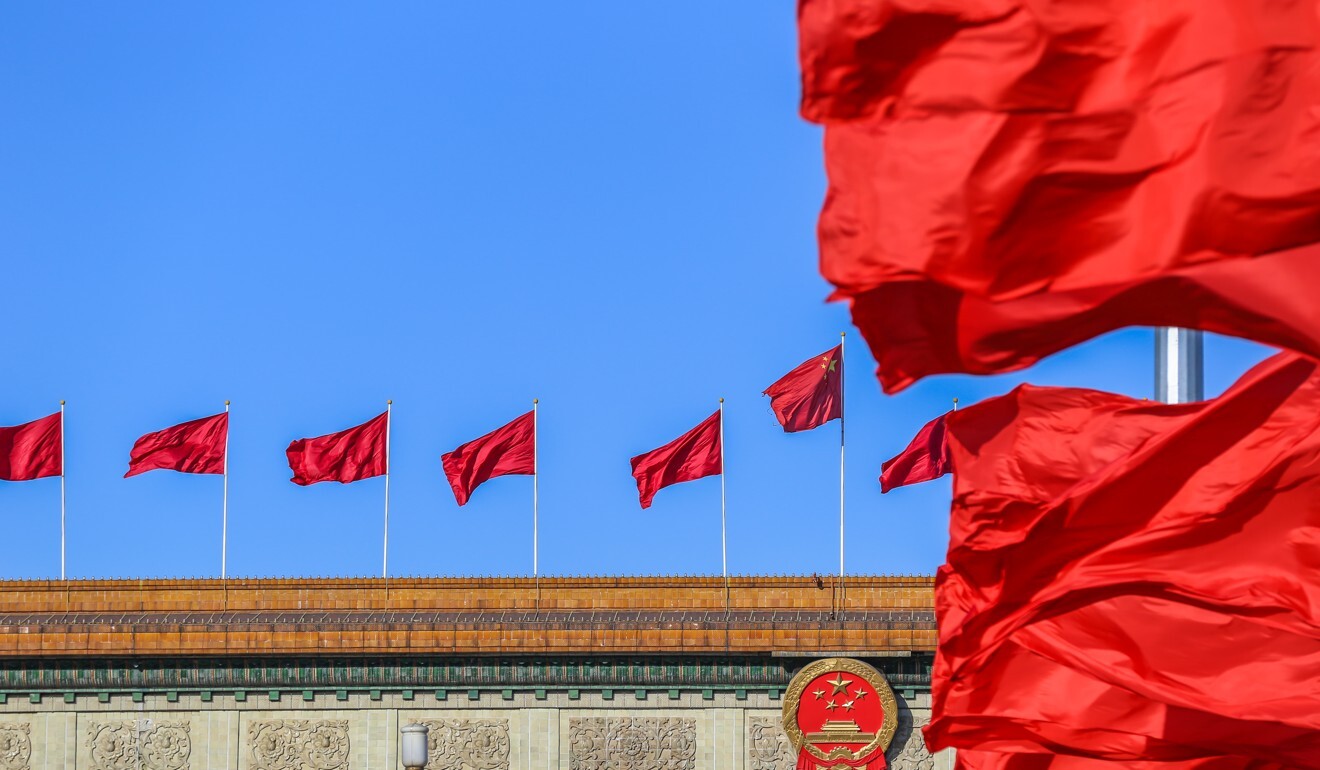
Hong Kong’s opposition swept the district councils in year of protests, but spotlight now on their history as Beijing shake-up looms
- Critics say opposition councillors’ aggression and political agenda after landslide victory at polls to blame for tension with government
- Opposition figures argue that voters had used the polls to punish authorities for what they saw as lack of democracy
Insiders said China’s top legislative body, the National People’s Congress Standing Committee (NPCSC), could discuss the proposals in a meeting ending on Saturday. Sources, however, said the issue was kept at an informal level with proper recommendations to be deferred to the NPCSC’s annual plenary session set for March 5 next year.
For now, the councillors were on borrowed time, analysts said. Some observers had blamed the confrontational behaviour of opposition councillors, especially the newbies, accusing them of turning local councils into political battlegrounds to further their agenda, thus hitting a raw nerve with the central government.
“The district councils are supposed to be an advisory body focusing on district affairs and livelihood issues. But since last year most councils have been politicised with the purpose of opposing the government,” said former veteran district councillor Leung Che-cheung, of the Democratic Alliance for the Betterment and Progress of Hong Kong (DAB).
“The ecology of the district councils has undergone a drastic change with some members really getting on the nerves of the government.”
But the opposition camp accused Beijing of trying to get rid of any players deemed radical, as it felt threatened by the city’s growing support for the bloc in the wake of the social unrest last year, sparked by the now-withdrawn extradition bill.
Former Democratic Party legislator James To Kun-sun, a veteran district councillor, said: “In the past the pro-establishment camp was able to secure many seats so Beijing just left things as they were. Now that Beijing has discovered the city’s voters are uncontrollable and posing a threat to its authority, it will seek to weed out opponents.”

The councils, gradually empowered with more say and government funding since 2008, had previously enjoyed a cordial relationship between the opposition and the pro-establishment camp as both sides tried to steer clear of politics to purely focus on municipal affairs and livelihood issues.
Formerly known as district boards until 1999, the councils represent the 18 districts of Hong Kong. They are under the Home Affairs Bureau’s supervision and their function is mainly advisory, with each term of councillors lasting four years.
Established in 1982 under the colonial government’s District Administration Scheme, their aim was to improve coordination of government activities in the provision of services and facilities at the district level and to promote public participation in district affairs.

05:45
Hong Kong’s pro-Beijing camp reeling after crushing defeat in district council elections
At first, the boards comprised appointed members with a proportion of elected members. However, under colonial governor Chris Patten’s electoral reform package, in 1994 all their appointed seats were abolished and the elections were held under a single-seat, single-vote electoral system.
Following a breakdown in negotiations between Beijing and the British government in late 1993, Patten pushed ahead with this reform package despite the central government’s disapproval.
After the handover in 1997, as part of the “through train” arrangement, the district boards became provisional boards, composed of all the original members of the boards supplemented by others appointed by the chief executive.
In early 1999, a bill was passed in the Legislative Council setting out the establishment, composition and functions of the district councils, which would replace the provisional district boards.
However, the former appointed seats and 27 ex officio seats of rural committees were reinstated, a move branded by the opposition camp as a “retrograde step in democracy”. The bloc said it was a throwback to the colonial era. In 2015, all the appointed seats were abolished.
The pay was so low that I often needed to use my wage to subsidise my work at the district councils
Former Yuen Long district councillor Lee Yuet-man, who had been a council member for almost 20 years, said in the 2000s, he only earned about HK$17,000 a month with only HK$10,000 a month for running his district office.
“The pay was so low that I often needed to use my wage to subsidise my work at the district councils,” he said. “But I just had a mission of helping more people in the district, that’s why I have been sticking to my job all these years.”
Lee admitted that during the first 10 years after the handover, without real powers and substantial funding support, district councillors offered nothing more than rhetoric and could do little to improve district affairs.
But the councils started to gain greater political importance in 2008 when then chief executive Donald Tsang Yam-kuen introduced more power for the bodies by allowing them to manage some facilities in their areas, with more funding for minor district works. Without the endorsement of the district councils, projects could also not proceed to Legco for approval.

Two years later, under Tsang’s political reform proposals centred on a controversial deal between the Democratic Party and Beijing, five lawmakers were added to district council functional constituencies, selected by a proportional representation of elected district council members. The move was to allow the five seats to be voted on by members of the general electorate who did not otherwise have a functional constituency vote. In short, the move gave more political sway to district councils.
In 2013, Tsang’s successor Leung Chun-ying further expanded the powers of the district councils by giving each a one-off grant of HK$100 million to carry out one or two projects of their choice to address residents’ needs.
The government has also committed an annual funding of HK$20.8 million since 2015 to enhance the promotion of arts and cultural activities in districts. An annual HK$340 million under a dedicated capital works block vote has also been provided for the councils to implement minor district works.
Over the years, district councillors’ salaries have gradually risen to the present HK$34,000 per month with reimbursement for their monthly operating expenses increased to HK$44,816 for office operations and staff wages.

“Since 2008, I’ve started to feel the honour of being a district councillor,” Lee Yuet-man said. “With more power and funding support, the councils’ deliberations would carry more weight. There are a lot of things we can do to improve the environment of districts, such as introducing some minor works like building a park.”
With ramped up resources, the district councils have served as a strategic platform for political parties to woo voters and develop their support base and networks across the city.
For many years, the district councils had been a stronghold of the pro-Beijing camp, with the DAB maintaining dominance.
But last year the opposition bloc turned the tables at the November elections, with many political novices – many of whom were protesters and activists in the 2019 anti-government movement – easily beating veteran candidates.

Leung Che-cheung of DAB said the social unrest had triggered hostile sentiments against the government, which caused many voters to side with opposition candidates, irrespective of their track record in public service.
James To, of the Democratic Party, argued that pent-up frustrations from the lack of democracy over the years had caused voters to oppose anyone in support of the government.
Many saw the district council polls as the only channel for them to vent their year-long frustrations over Hong Kong politics
“Before the district council elections last year, the government had already disqualified certain pro-democracy candidates. For over 20 years Hongkongers have been deprived of democracy,” he said.
“That’s why many saw the district council polls as the only channel for them to vent their years-long frustrations over Hong Kong politics.”
Leung believed the confrontational behaviour of opposition members was the catalyst behind Beijing’s latest decisions to overhaul the councils.
“On many occasions they were crossing the line such as kicking out some police representatives from council meetings, calling for condemnation of police chief Chris Tang, and requesting the ‘five demands’ from the anti-government protests, which has nothing to do with the meeting agenda,” he said.
As for the fate of opposition district councillors, Leung believed that by expanding oath-taking requirements, many of them would be booted out.
Depoliticised district councils could be the new norm in future, analysts predicted.
To said Beijing might wipe out the district council elections as it did not want to subsidise those who opposed China and the government. “When Beijing thinks it can no longer control Hong Kong’s voters, it doesn’t need to retain the district council elections. It can simply turn district councils into a purely advisory body with appointed members,” he said.

